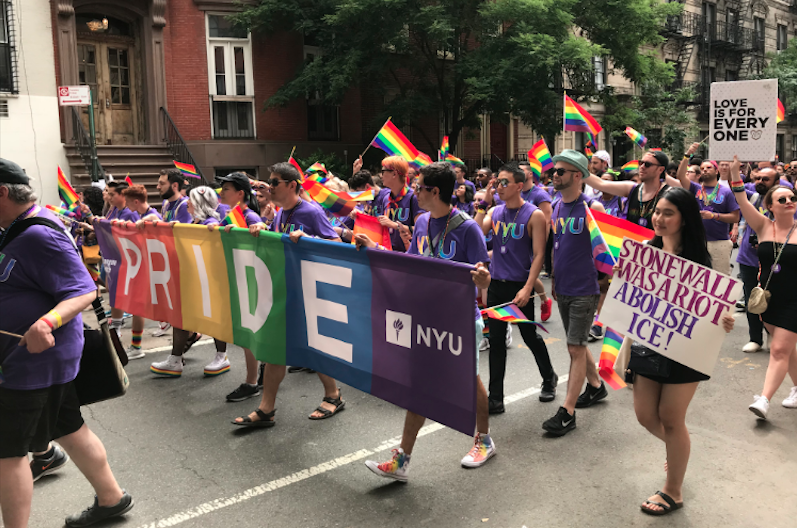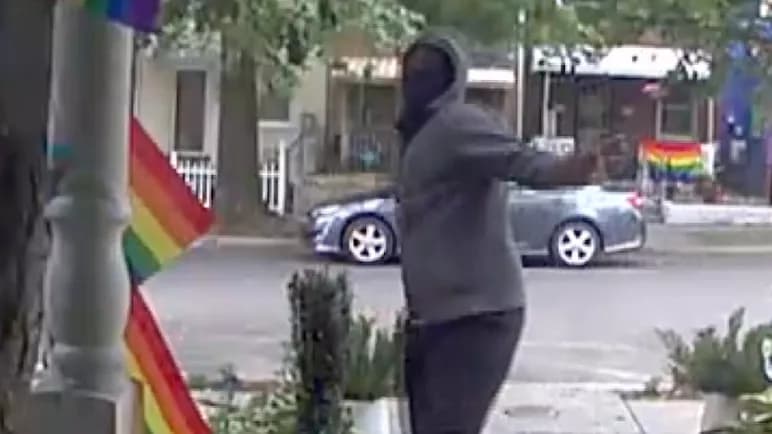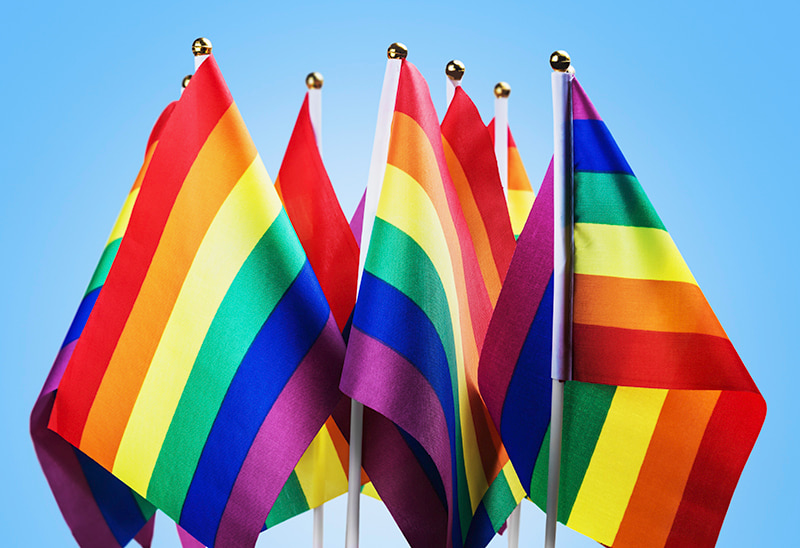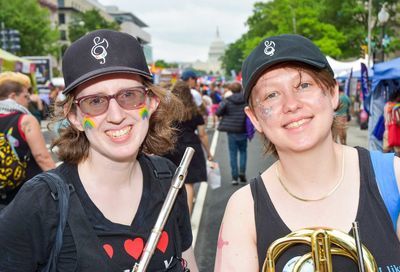A majority of LGBTQ students have heard homophobic or transphobic remarks from their teachers
GLSEN's National School Climate Survey found that progress on LGBTQ rights and school safety is slipping under the Trump presidency

A new survey has revealed that progress on LGBTQ rights and school safety is starting to slip after years of improvement.
GLSEN, an organization dedicated to improving the safety and accessibility of schools for LGBTQ youth, recently published the results of its 2017 National School Climate Survey, the first of its biennial surveys to collect data from during the Trump presidency.
They found that a majority of LGBTQ students feel unsafe or uncomfortable in their school, a majority have heard their teachers or school staff say something anti-LGBTQ, and that more than one in ten LGBTQ students have transferred school because they feel so unsafe or uncomfortable, among other findings.
Compared with the organization’s 2015 survey, the results of the survey show “fewer positive changes…than we had seen in the 2015 installment of the survey.”
“The progress of the last decade — the result of robust partnerships and concerted action in support of youth health and safety — has slowed,” Eliza Byard, Ph.D., Executive Director of GLSEN, said in the report. “The momentum built over years of effort by GLSEN and our partners in government, education, LGBTQ rights, and youth development now faces an entirely new level of pushback. Our work to secure respect for all in our schools now contends with the radical rejection of standards and values in public life we used to take for granted, and the continuing erosion of our public commitment to education for all. And that all shows up in the lives of LGBTQ students.”
Among the reports findings:
- 60% of LGBTQ students have felt unsafe at school because of their sexual orientation
- 44.6% have felt unsafe because of their gender expression, and 35% have felt unsafe because of their gender
- More than one-third of LGBTQ students have missed at least one day of school in the month prior to the survey due to feeling unsafe or uncomfortable
- More than 40% of LGBTQ students avoid gender-segregated spaces due to feeling unsafe
- Almost one-fifth reported changing schools due to feeling unsafe
- Almost every LGBTQ student had heard anti-LGBTQ remarks at school
- 98.5% had heard “gay” used negatively
- 94% had heard negative remarks regarding gender expression, such as not acting “masculine enough”
- 87.4% had heard anti-transgender remarks
- More than half of students had heard homophobic remarks from their teachers or school staff
- That rose to 71% for negative remarks about gender expressions
- Almost 9 in ten students had experienced harassment or assault based on LGBTQ status, race, ethnicity, and disability — either perceived or actual
- More than one in ten students had been physically assaulted, such as punched, kicked, or injured with a weapon
- More than half of students who were harassed or assaulted didn’t report it to school staff, because they feared it would make things worse
- Of those who did report it, 60% were either told to ignore it or staff did nothing
LGBTQ students who faced higher levels of victimization were more likely to have missed school and have lower grade point averages than peers who experienced less frequent harassment, and were more likely to abandon plans to pursue secondary education.
And while a majority of students reported having a Gay-Straight Alliance club or similar in their school (53.3%), almost two-thirds of students reported experiencing discriminatory policies or practices at school, including being disciplined for public displays of affection that non-LGBTQ students weren’t disciplined for (31.3%), banned from wearing clothes that were “inappropriate” for their legal sex (22.6%), prohibited from discussing LGBTQ topics in assignments (18.2%), and prevented or discouraged from participating in sports because they are LGBTQ (11.3%).
Byard said that “amidst the warning signs” in the survey’s results there was some hope to be found.
“First, it remains clear that students in those schools with critical LGBTQ-affirming resources and supports in place do better — these supports are working, even in the harsh anti-LGBTQ climate of our times,” she said. “We must continue to push for LGBTQ-affirming and inclusive curriculum and policies, and for educators willing and prepared to support and affirm LGBTQ students.
“Second, GSA student clubs continue to serve as a potent force for positive change, and the LGBTQ students that lead them are changing their schools and their world for the better,” she added. “Progress in the growth of GSAs continues, bucking the concerning trends, and more than 50% of LGBTQ students are in schools that now have one…. There is continuing evidence that LGBTQ youth in schools with GSAs fare far better than their peers in terms of their mental health, and students involved with them are highly engaged in changing the world for the better.
“There is both power and hope here,” Byard concluded. “There is also a challenge to us all – we each have a role to play in supporting and partnering with student leaders, and in doing the hard, local work it takes to bring essential change to every school in this country.”
Support Metro Weekly’s Journalism
These are challenging times for news organizations. And yet it’s crucial we stay active and provide vital resources and information to both our local readers and the world. So won’t you please take a moment and consider supporting Metro Weekly with a membership? For as little as $5 a month, you can help ensure Metro Weekly magazine and MetroWeekly.com remain free, viable resources as we provide the best, most diverse, culturally-resonant LGBTQ coverage in both the D.C. region and around the world. Memberships come with exclusive perks and discounts, your own personal digital delivery of each week’s magazine (and an archive), access to our Member's Lounge when it launches this fall, and exclusive members-only items like Metro Weekly Membership Mugs and Tote Bags! Check out all our membership levels here and please join us today!





























You must be logged in to post a comment.